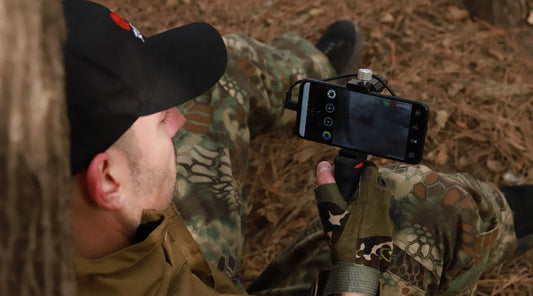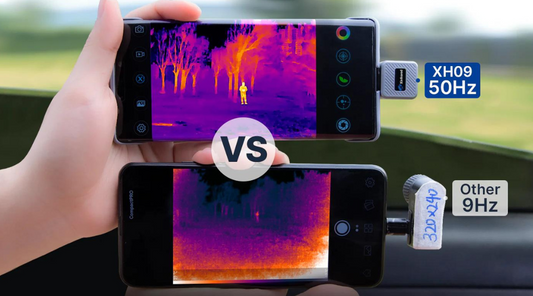Unlock the Power of Thermal Imaging Camera in PCB Inspection
PCB (Printed Circuit Board) inspection is a critical aspect of electronics manufacturing, ensuring the quality and reliability of electronic devices. In this blog, we will delve into the transformative capabilities of thermal imaging cameras in PCB inspection, shedding light on their invaluable role in identifying hidden issues and preventing potential failures.
Understanding Thermal Imaging Cameras
Thermal imaging cameras operate on the principle of capturing infrared radiation emitted by objects. These devices translate temperature variations into visible images, allowing technicians to identify anomalies that may not be visible to the naked eye. The key components of a thermal camera include the lens, sensor, and image processing software, working in tandem to deliver accurate thermal data.

Benefits of Thermal Imaging in PCB Inspection
Detection of Overheating Components
Thermal imaging cameras excel in pinpointing components with elevated temperatures, indicating potential issues such as malfunctioning or stressed components. This early detection helps prevent critical failures that could compromise the device's performance.
Identification of Faulty Connections and Solder Joints
The ability to visualize temperature variations enables technicians to identify faulty connections and solder joints. This is crucial for maintaining the structural integrity of the PCB, as faulty connections can lead to electrical failures and device malfunctions.

Early Detection of Potential Issues
Thermal imaging allows for the early identification of issues before they escalate. By capturing thermal data during routine inspections, technicians can address emerging problems proactively, minimizing downtime and reducing the likelihood of costly repairs.
Non-Destructive Nature of Thermal Imaging
Unlike some traditional inspection methods, thermal imaging is non-destructive. This means that inspections can be carried out without causing any harm to the PCB or the components, providing a safe and effective means of quality assurance.

How to Use Thermal Imaging Cameras for PCB Inspection
Proper Setup and Calibration
Ensure that the thermal camera is properly set up and calibrated before use. Calibration is essential for accurate temperature measurements and reliable thermal data.
Best Practices for Capturing Thermal Images
Follow best practices for capturing thermal images, such as maintaining the right distance, adjusting emissivity settings, and considering ambient conditions. These practices contribute to the precision of thermal data.
Interpretation of Thermal Data and Analysis Techniques
Training technicians on the interpretation of thermal data is crucial. Understanding temperature variations and anomalies is essential for making informed decisions during PCB inspection.

Integrating Thermal Imaging into PCB Inspection Processes
Tips for Incorporating Thermal Imaging
Provide tips for seamlessly integrating thermal imaging into routine inspections, emphasizing its role as a complementary tool in the overall inspection process.
Training Requirements
Highlight the importance of training technicians in the proper use and interpretation of thermal imaging data. Proficient technicians enhance the effectiveness of thermal inspections.
Considerations for Implementation
Discuss considerations for implementing thermal imaging in various industries, acknowledging the unique requirements and challenges each sector may face.

Future Trends in Thermal Imaging for PCB Inspection
Emerging Technologies and Advancements
Explore upcoming technologies and advancements in thermal imaging, hinting at the exciting possibilities that could further enhance PCB inspection processes.
Potential Innovations
Discuss potential innovations, such as enhanced resolution, artificial intelligence integration, and advanced data analytics, that may shape the future of thermal imaging in PCB inspection.
Unlocking the power of thermal imaging cameras in PCB inspection is a game-changer for the electronics manufacturing industry. By embracing this technology, businesses can ensure the reliability and quality of their products, ultimately leading to enhanced customer satisfaction and reduced operational costs.




